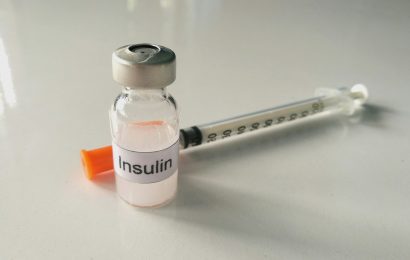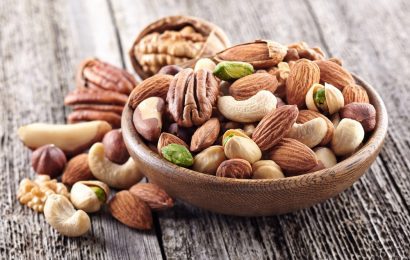Most diabetes docs and educators recommend weight loss. I think that’s a losing strategy for most (not all) people. The weight nearly always comes back, bringing glucose and blood pressure back up with it. But why is sustained weight loss so difficult?
The short answer is that our bodies hate to lose weight and will do almost anything to get it back. Through our millions of years of history, the danger has always been famine and starvation. We have evolved to put on weight and keep it on, to protect against times of food scarcity. These “thrifty” genes tell us, “Rest, save energy, eat more fat. You’ll need it.” They also create insulin resistance and encourage abdominal fat deposition, to increase stores of energy for hard times.
It appears that a few generations without hunger will turn off many of those thrifty genes for most people. Then they can eat what they want without gaining much weight, which is what happened to well-off Europeans and Asians. But for people whose families have experienced food scarcity in the last two or three generations, the genes will be turned on. This is one reason you see so much obesity among Native Americans, Pacific Islanders, and poor people of all races.
As I wrote in 2008, dieting is an artificial form of food scarcity and will activate your thrifty genes. According to the Mayo Clinic, dieting causes your body to slow its metabolism to conserve weight.
When you diet, your leptin levels will drop, or your brain will become leptin-resistant. Leptin is the chemical that tells us we’re full, so you will be hungrier as you lose weight. Dieting or exercise also makes food taste better. A French study found that even thinking about exercise makes people eat more.
Stress also seems to mimic the effects of food insecurity on our bodies. Stress increases insulin resistance and fat deposition and makes us hunger for high calorie “comfort foods.” Dieting and focusing on weight can be major sources of stress.
Weight Loss and Diabetes
So what does this mean for diabetes? We know that for overweight people with Type 2 or Type 1.5, reduced weight often leads to better glucose control, cholesterol, and blood pressure numbers. But those numbers come back up when the weight comes back. They even start to increase before the weight does in many cases. Quite probably, the weight loss isn’t helping as much as the things you are doing to lose weight — exercising, eating less, reducing stress.
To be fair, it’s not impossible to keep weight off. The National Weight Control Registry keeps track of people who have maintained at least a 30-pound weight loss for at least a year. They had 4500 people in the Registry last time I looked. According to Registry founders James Hill, PhD, and Rena Wing, PhD, about 20% of overweight and obese Americans who tried to lose weight have succeeded in keeping off a significant number of pounds.
The successful losers ate all different kinds of diets but had a few strategies in common. Nearly all ate breakfast every day. They watched very little TV. They focused more on exercise than on food consumption. They ate similar foods at similar times every day. (Of course, by doing this they were probably reducing the pleasure they got from eating. You’ll have to decide for yourself if this last one is worth it.)
This 20% success rate seems based on analyzing university-run weight loss studies, and it seems high to me. But even if it is correct, that still means 80% of dieters have gained their weight back, usually with additional pounds added.
In my view then, it’s better to focus on glucose and blood pressure numbers, and on how you feel, in the first place, and to leave weight out of the picture. It appears that no diet alone will prevent weight regain , so let’s focus on foods and behaviors that keep our blood glucose and pressure down and make us feel good, and let the weight take care of itself.
One request — please don’t go away from this article saying “David Spero says it doesn’t matter how much I eat or exercise.” That’s not what I’m saying. Eating well and exercising are important, of course! My point is that weight loss is not a good goal. Glucose and blood pressure control are. Uncontrolled blood glucose and blood pressure are the things that will damage you; and those are things you can change, so focus on them, not on weight.
**
Gandhi said “Be the change you want to see in the world.” I’m not sure I understand that, but I wrote some stories about how it could work on my blog Reasons to Live.




